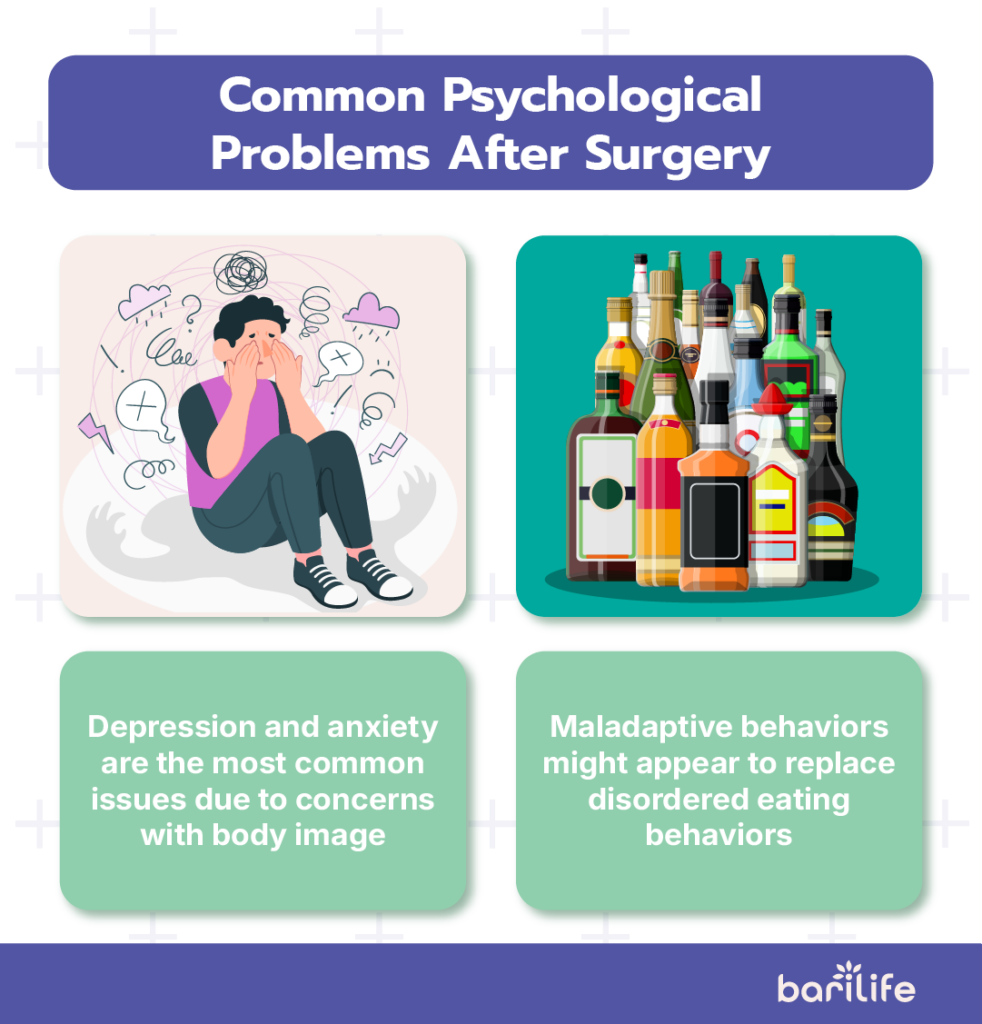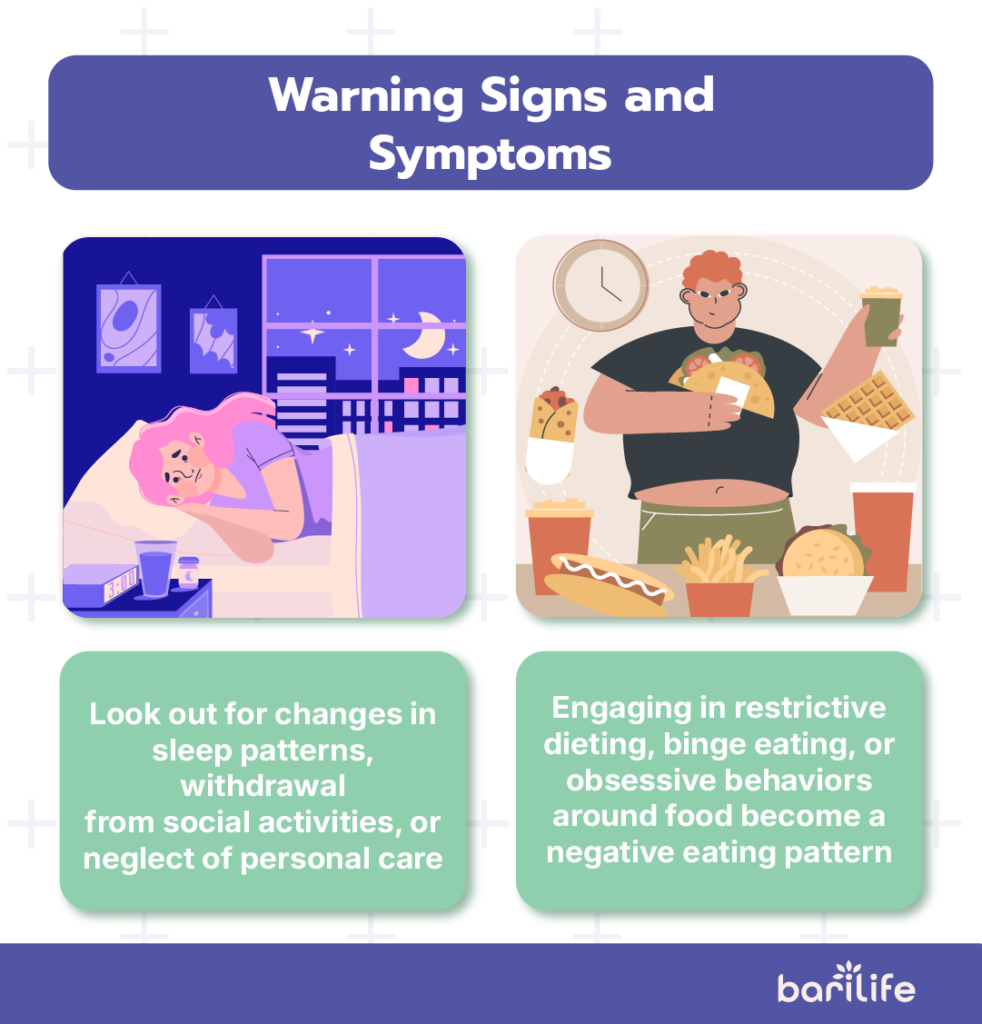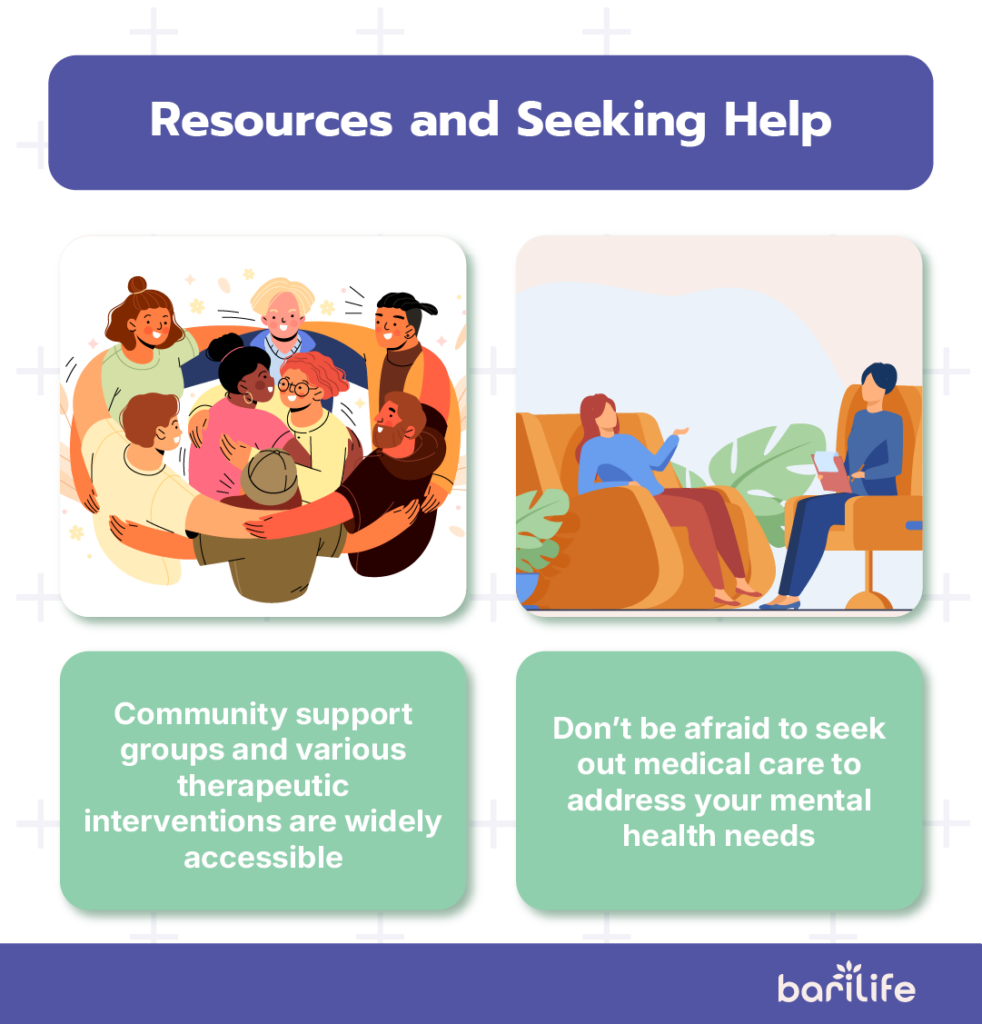Bariatric surgery is often celebrated as a life-changing solution for individuals struggling with severe obesity. It offers the promise of significant weight loss, improved physical health, and a renewed sense of confidence. However, the journey doesn’t end with the surgical procedure. While the physical transformations can be profound, the psychological challenges that often accompany this change are just as significant—and sometimes overlooked.
A new relationship with food, a changed self-image, and shifts in social dynamics can create new challenges. Also, unresolved emotions may resurface, potentially leading to depression after bariatric surgery. They could have caused past overeating. This creates new challenges. This article is a must-read for patients and their families. It looks at the psychological issues after bariatric surgery, including late complications of bariatric surgery and emotional challenges.
By understanding the mental health aspects of this journey, patients can better prepare themselves for long-term success, not just in achieving weight loss, but in fostering emotional well-being.
Table of Contents
Common Psychological Problems After Surgery

After bariatric surgery it’s common for patients to go through a recovery period where they are adjusting to their new body and many new lifestyle changes. During this period, many patients see improvements, but some may experience new onset depression and anxiety.
Body image concerns are common as many patients struggle with lingering self-esteem issues. On top of this, rapid weight loss that occurs from bariatric surgeries can lead to excess skin. Many experience body dissatisfaction as a consequence. Bariatric vitamins, such as bariatric vitamins chewable and liquid bariatric vitamin, are often recommended during this phase to support nutritional needs.
Some patients may even develop maladaptive behaviors such as substance abuse or compulsive behaviors. For instance, alcoholism after bariatric surgery is a potential issue, as some individuals may turn to alcohol as a substitute for previous disordered eating habits. These substitute behaviors are sometimes referred to as transfer addictions.
Causes and Contributing Factors
Mental health is complex and there are many causes and contributing factors that affect someone’s psychological distress after bariatric surgery. One important cause to consider is the role of hormones. After weight loss procedures, hormone changes are common. These fluctuations can influence mood and behavior, potentially leading to poor mental health.
As discussed previously, the diet and lifestyle adjustments that need to be made after bariatric surgery are significant and extensive. This can be an overwhelming challenge for many patients. You need to not only develop structure to be able to adhere to these new guidelines, but you also need to adopt effective coping strategies to prevent emotional difficulties.
Patients must also be mindful of potential physical complications. For example, what causes kidney stones after bariatric surgery is often linked to changes in dietary habits, dehydration, or malabsorption issues.
Lastly, it’s common for many bariatric patients to set unrealistic expectations. These expectations from oneself and social pressures from others can lead to disappointment and stress. This highlights the need for setting realistic goals and implementing a support system to manage societal expectations.
Warning Signs and Symptoms
It’s important to monitor for the warning signs and symptoms of poor mental health after bariatric surgery. There are many behavioral indicators of psychological distress. Look out for changes in sleep patterns, withdrawal from social activities, or neglect of personal care. These symptoms may signal underlying mental health issues.

Additionally, be mindful of disordered eating patterns. Engaging in restrictive dieting, binge eating, or obsessive behaviors around food could be symptoms of a negative eating pattern, which are common in individuals that undergo bariatric surgery.
Other red flags to look out for include persistent feelings of sadness, irritability, or social isolation. These are critical signs that warrant professional medical attention.
Preventive Strategies and Management
Counseling is an important tool to consider when choosing weight loss surgery. Both before and after surgery, therapy can be a helpful way to address emotional challenges and foster healthier coping mechanisms. This can ensure that you are set up for success on your surgical recovery journey.
Additionally, it’s key to develop healthy coping mechanisms. Learning stress management techniques and establishing a balanced lifestyle are vital for emotional resilience after weight loss surgery. These can be learned from counseling or from other supportive networks.
If you are considering weight loss surgery, be sure to set up a robust support system. You will need not only continuous support from healthcare providers, but family and support groups as well. This support should include regular follow up medical appointments to monitor for poor mental health before it gets too dangerous.
Resources and Seeking Help
If you are struggling, there are many resources and ways to seek help. Community support groups and various therapeutic interventions are widely accessible. These can assist patients in their psychological adjustment after weight loss surgery.
Don’t be afraid to seek out medical care to address your mental health needs. A wide, multidisciplinary healthcare team is key for comprehensive care. This team should include surgeons, dietitians, and psychologists, etc.
If you have severe or lasting mental symptoms, seek help. Reach out to your healthcare provider for help finding treatment.

Bariatric surgery can improve health and quality of life. But, it has challenges, especially for mental health. It’s vital to tackle any psychological hurdles for long-term success. By knowing the common emotional and mental health issues linked to weight loss surgery, patients and their families can better navigate the journey.
A strong support network, expert guidance, and realistic goals are vital for a full recovery. Remember, health means more than losing weight. It means to nurture your emotions and accept yourself. With the right tools and support, patients can thrive. They can achieve their weight loss goals and a fulfilling life. Your mental health matters. So, seek help and prioritise it in your wellness journey.
Conclusion
Bariatric surgery offers significant physical benefits but also presents psychological challenges like body image issues, transfer addictions, and hormonal changes. Success requires holistic care, including counseling, realistic goal-setting, and strong support systems.
Bari Life highlights the importance of balanced nutrition with products like chewable and liquid vitamins, essential for post-surgery recovery. True wellness is about both physical health and emotional well-being, supported by the right tools and resources for long-term success.




What are your tips and tricks to post-bariatric success?